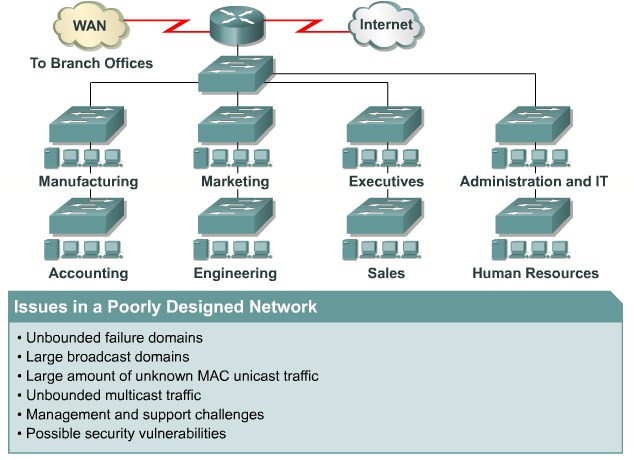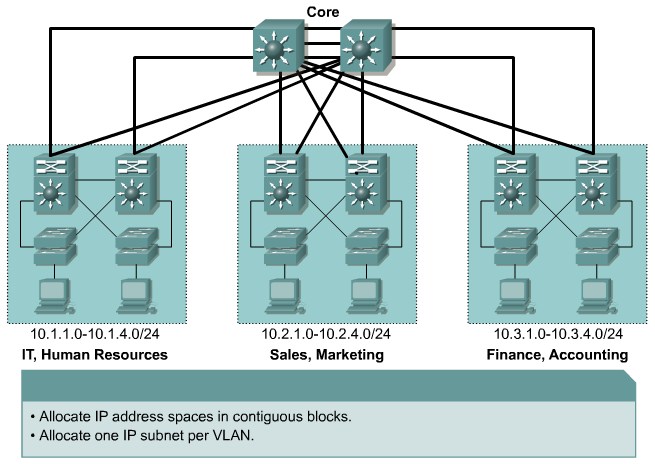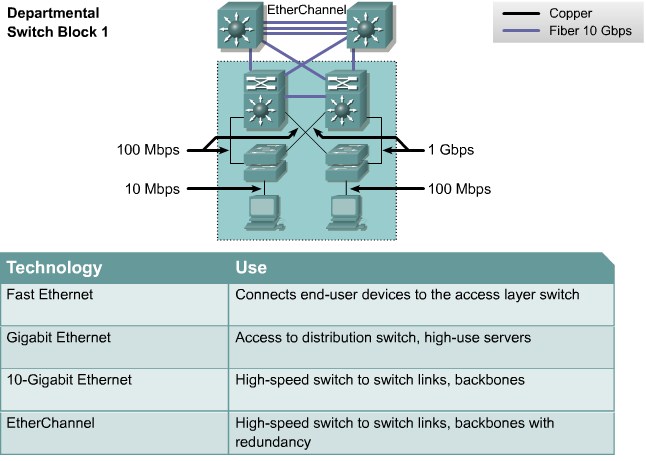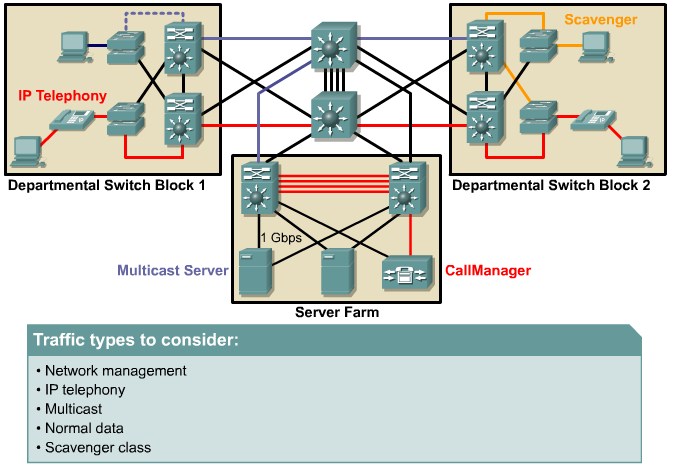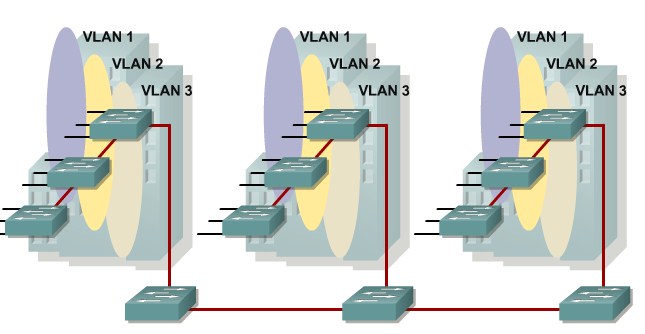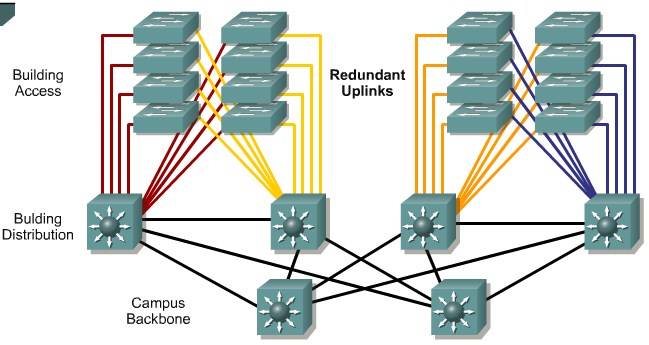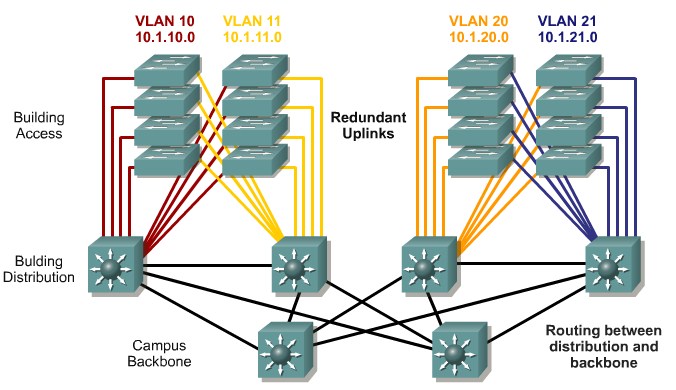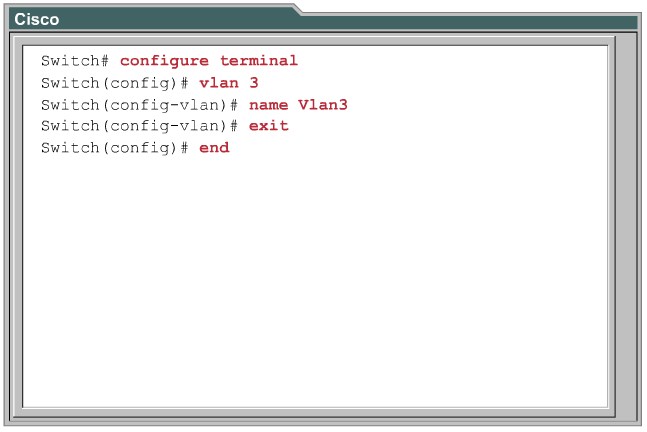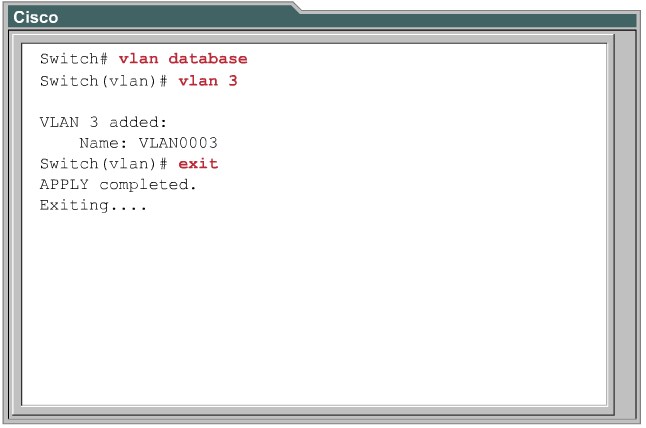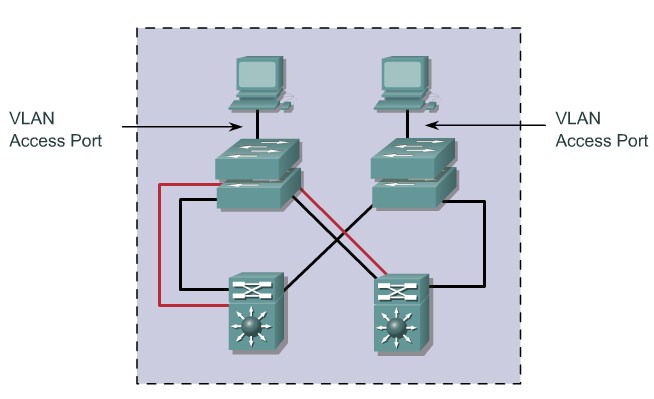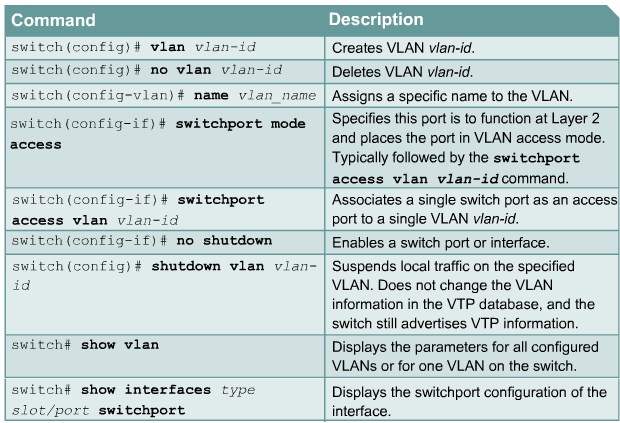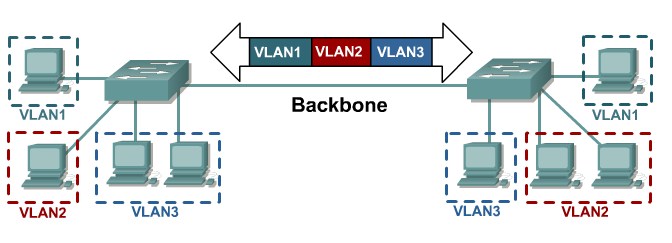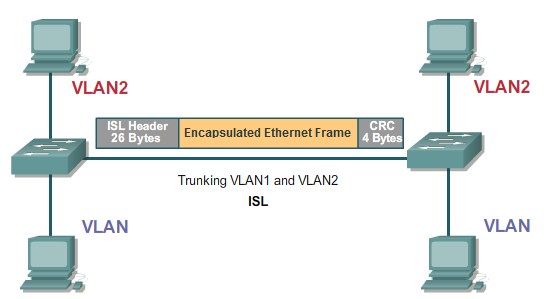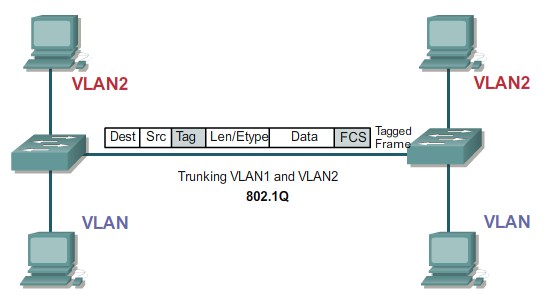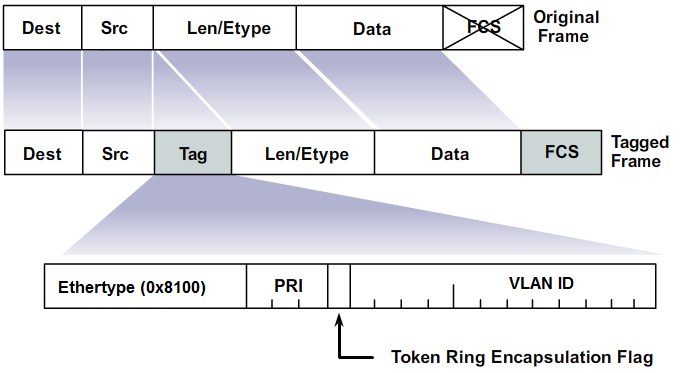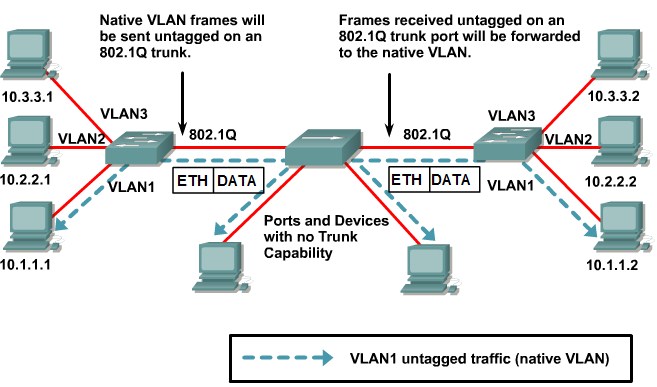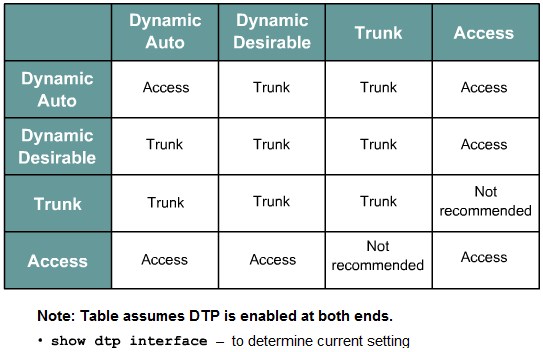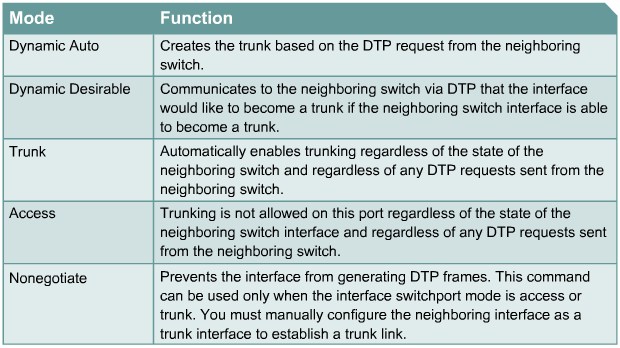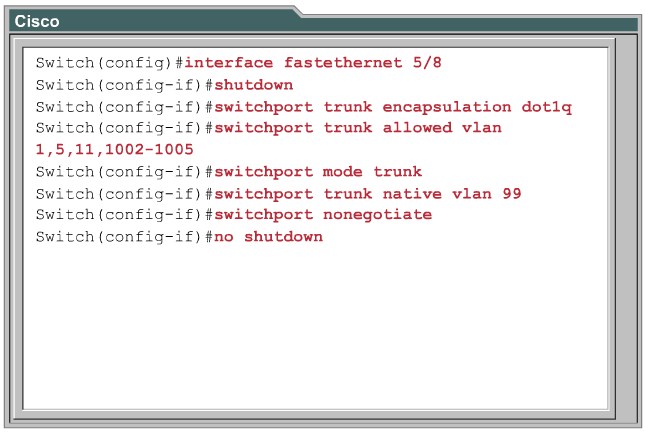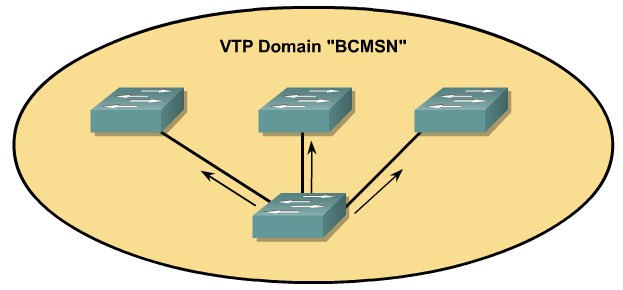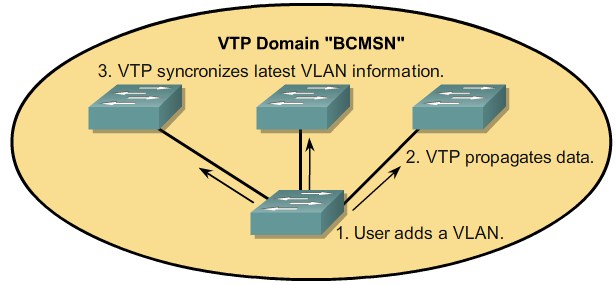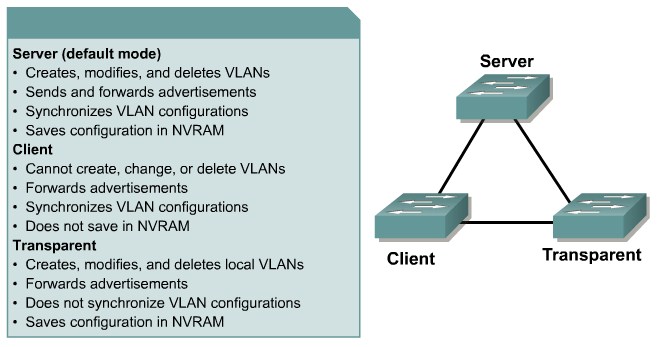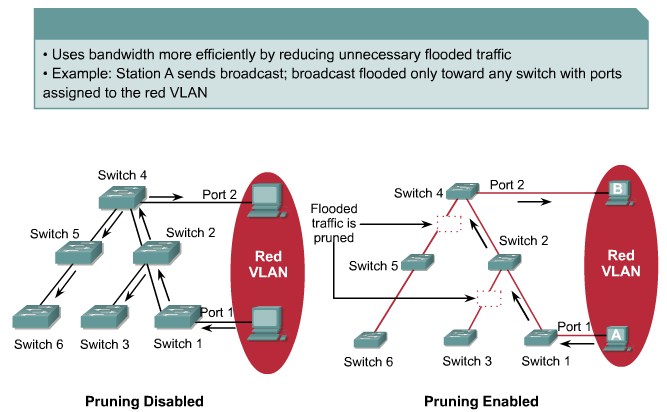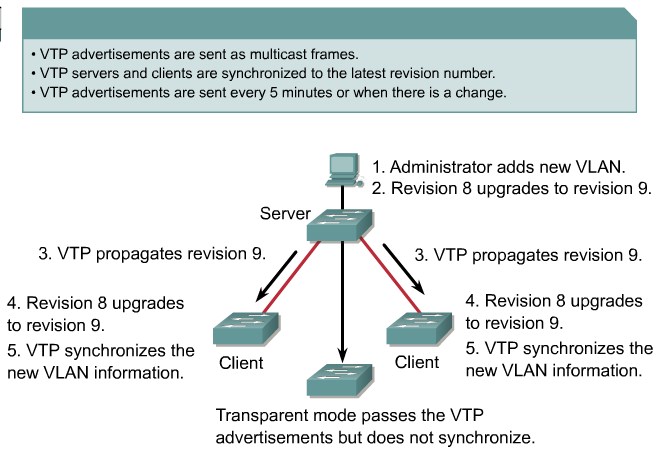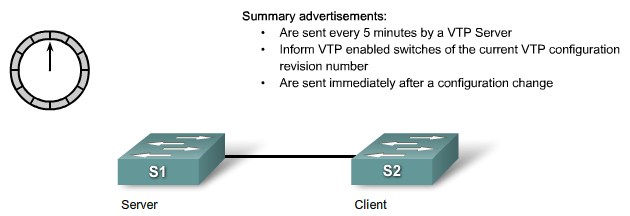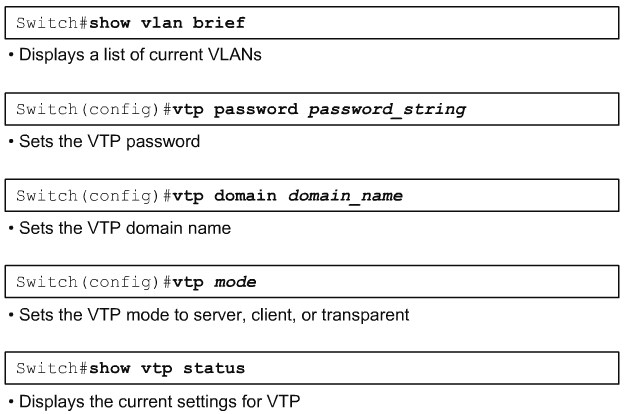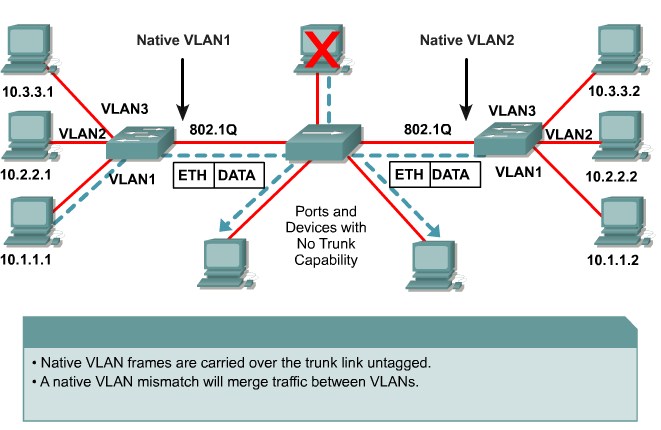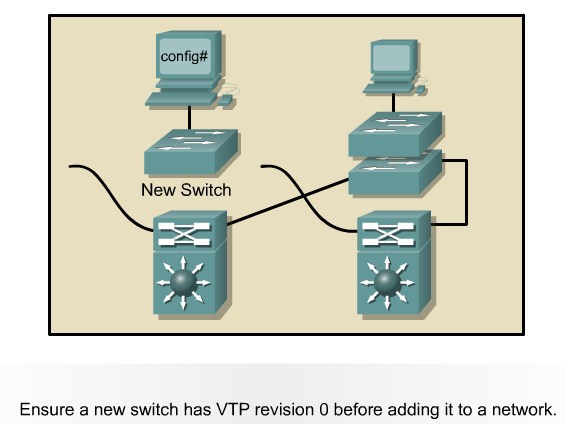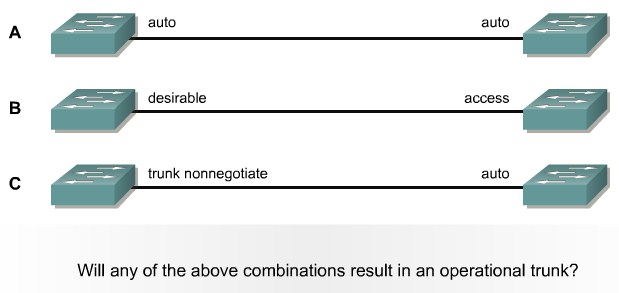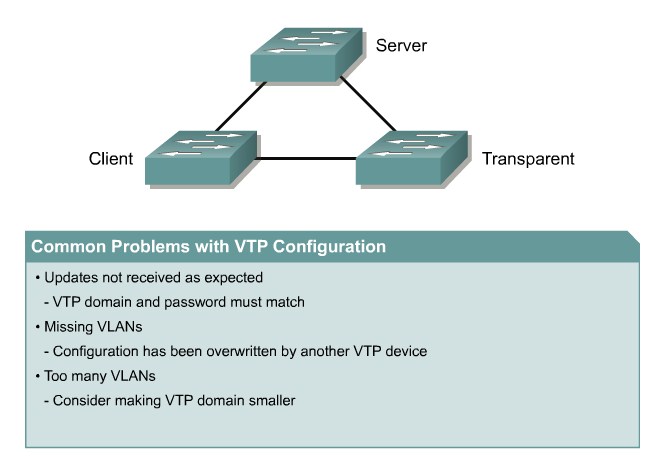Difference between revisions of "CCNP 3 Defining VLANs"
From Teknologisk videncenter
m (New page: =Implementing Best Practices for LVLAN Topologies= ==Describing Issues in a Poorly Designed network== {| |800px|left|thumb|Poorly design |} ==Grouping Business ...) |
m (→Adding New Switches to an Existing VTP Domain) |
||
| (13 intermediate revisions by the same user not shown) | |||
| Line 1: | Line 1: | ||
| − | =Implementing Best Practices for | + | =Implementing Best Practices for VLAN Topologies= |
==Describing Issues in a Poorly Designed network== | ==Describing Issues in a Poorly Designed network== | ||
{| | {| | ||
| Line 43: | Line 43: | ||
*Make end-user VLANs and subnets local to a specific switch block. | *Make end-user VLANs and subnets local to a specific switch block. | ||
*Ideally, limit a VLAN to one access switch or switch stack. However, it may be necessary to extend a VLAN across multiple access switches within a switch block to support a capability such as wireless mobility. | *Ideally, limit a VLAN to one access switch or switch stack. However, it may be necessary to extend a VLAN across multiple access switches within a switch block to support a capability such as wireless mobility. | ||
| + | |} | ||
| + | =Implementing VLANs= | ||
| + | ==VLAN Configuration modes== | ||
| + | {| | ||
| + | |[[Image:ScreenShot325.jpg|800px|left|thumb|Global VLAN configuration mode]] | ||
| + | |- | ||
| + | |[[Image:ScreenShot326.jpg|800px|left|thumb|VLan Database mode]] | ||
| + | |} | ||
| + | |||
| + | ==Explaining VLAN access Ports== | ||
| + | {| | ||
| + | |[[Image:ScreenShot327.jpg|800px|left|thumb|VLAN access ports]] | ||
| + | |- | ||
| + | |'''VMPS''' - VLAN Membership Policy Server | ||
| + | |} | ||
| + | ==Vlan Implementation== | ||
| + | {| | ||
| + | |[[Image:ScreenShot328.jpg|800px|left|thumb|Implement VLAN commands]] | ||
| + | |} | ||
| + | =Implementing Trunks= | ||
| + | ==Explaining VLAN Trunks== | ||
| + | {| | ||
| + | |[[Image:ScreenShot329.jpg|800px|left|thumb|VLAN Trunks]] | ||
| + | |- | ||
| + | |[[Image:ScreenShot330.jpg|800px|left|thumb|Dot1Q and ISL]] | ||
| + | |} | ||
| + | ==Describing ISL Trunks== | ||
| + | {| | ||
| + | |[[Image:ScreenShot331.jpg|800px|left|thumb|ISL Encapsulation]] | ||
| + | |} | ||
| + | ==Describing 802.1Q Trunking== | ||
| + | {| | ||
| + | |[[Image:ScreenShot332.jpg|800px|left|thumb|802.1Q Trunking]] | ||
| + | |- | ||
| + | |[[Image:ScreenShot333.jpg|800px|left|thumb|802.1Q Tag]] | ||
| + | |} | ||
| + | ==Explaining 802.1Q Nativ VLANs== | ||
| + | {| | ||
| + | |[[Image:ScreenShot334.jpg|800px|left|thumb|Nativ VLAN]] | ||
| + | |} | ||
| + | ==DTP Switchport Interactions== | ||
| + | {| | ||
| + | |[[Image:ScreenShot335.jpg|800px|left|thumb|DTP Interactions]] | ||
| + | |- | ||
| + | |[[Image:ScreenShot336.jpg|800px|left|thumb|DTP Modes]] | ||
| + | |} | ||
| + | ==Configuring a Trunk== | ||
| + | {| | ||
| + | |[[Image:ScreenShot337.jpg|800px|left|thumb|Trunk Configuration]] | ||
| + | |} | ||
| + | =Propagating VLAN Configurations with VLAN Trunking Protocol= | ||
| + | ==Explaining VTP Domains== | ||
| + | {| | ||
| + | |[[Image:ScreenShot338.jpg|800px|left|thumb|VTP Domains]] | ||
| + | |} | ||
| + | ==Describing VTP== | ||
| + | {| | ||
| + | |[[Image:ScreenShot339.jpg|800px|left|thumb|VTP propagation]] | ||
| + | |} | ||
| + | ==VTP Modes== | ||
| + | {| | ||
| + | |[[Image:ScreenShot340.jpg|800px|left|thumb|VTP Modes]] | ||
| + | |} | ||
| + | ==Describing VTP Pruning== | ||
| + | {| | ||
| + | |[[Image:ScreenShot341.jpg|800px|left|thumb|VTP Pruning]] | ||
| + | |} | ||
| + | ==Describing VTP Operation== | ||
| + | {| | ||
| + | |[[Image:ScreenShot342.jpg|800px|left|thumb|VTP Operation]] | ||
| + | |} | ||
| + | '''VTP Advertisements:''' | ||
| + | {| | ||
| + | |[[Image:ScreenShot096.jpg|800px|left|thumb|VTP Summary]] | ||
| + | |- | ||
| + | |[[Image:ScreenShot097.jpg|800px|left|thumb|VTP Subset]] | ||
| + | |- | ||
| + | |[[Image:ScreenShot098.jpg|800px|left|thumb|VTP Request]] | ||
| + | |} | ||
| + | ==VTP Configuration== | ||
| + | {| | ||
| + | |[[Image:ScreenShot343.jpg|800px|left|thumb|VTP Confguration Steps]] | ||
| + | |- | ||
| + | |[[Image:ScreenShot344.jpg|800px|left|thumb|VTP Configuration]] | ||
| + | |- | ||
| + | | | ||
| + | '''Step 1''' Establish a design specifying which switches are server, client, or transparent, and what the boundaries are for the VTP domain. <br/> | ||
| + | '''Step 2''' Verify the current VLAN information on any switch that will be configured as server.<br/> | ||
| + | '''Step 3''' Specify the VTP password (optional).<br/> | ||
| + | '''Step 4''' Specify the version number, if other than the default.<br/> | ||
| + | '''Step 5''' Specify the VTP domain name (case-sensitive).<br/> | ||
| + | '''Step 6''' Configure the VTP mode. <br/> | ||
| + | '''Step 7''' Verify the configuration.<br/> | ||
| + | '''Step 8''' Verify that updates are being sent from or received by the switch as intended.<br/> | ||
| + | |} | ||
| + | =Correcting Common VLAN Configuration Errors= | ||
| + | ==Describing Issues with 802.1Q Native VLAN== | ||
| + | {| | ||
| + | |[[Image:ScreenShot346.jpg|800px|left|thumb|Nativ VLAN Mismatch]] | ||
| + | |} | ||
| + | |||
| + | ==Adding New Switches to an Existing VTP Domain== | ||
| + | {| | ||
| + | |[[Image:ScreenShot345.jpg|800px|left|thumb|Revision error]] | ||
| + | |} | ||
| + | ==Describing Trunk Link Problems== | ||
| + | {| | ||
| + | |[[Image:ScreenShot347.jpg|800px|left|thumb|Trunk Link]] | ||
| + | |} | ||
| + | ==Common Problems with VTP Configuration== | ||
| + | {| | ||
| + | |[[Image:ScreenShot348.jpg|800px|left|thumb|Common VTP Problems]] | ||
|} | |} | ||
Latest revision as of 14:32, 22 August 2011
Contents
Implementing Best Practices for VLAN Topologies
Describing Issues in a Poorly Designed network
Grouping Business Functions into VLANs
Interconnection Technologies
Oversubscription
|
Network traffic Types
Describing End-to-End VLANs
Describing Local VLANs
|
Mapping VLANs in a Hierarchical network
When mapping VLANs onto the new hierarchical network design, keep these parameters in mind.
|
Implementing VLANs
VLAN Configuration modes
Explaining VLAN access Ports
| VMPS - VLAN Membership Policy Server |
Vlan Implementation
Implementing Trunks
Explaining VLAN Trunks
Describing ISL Trunks
Describing 802.1Q Trunking
Explaining 802.1Q Nativ VLANs
DTP Switchport Interactions
Configuring a Trunk
Propagating VLAN Configurations with VLAN Trunking Protocol
Explaining VTP Domains
Describing VTP
VTP Modes
Describing VTP Pruning
Describing VTP Operation
VTP Advertisements:
VTP Configuration
|
Step 1 Establish a design specifying which switches are server, client, or transparent, and what the boundaries are for the VTP domain. |
